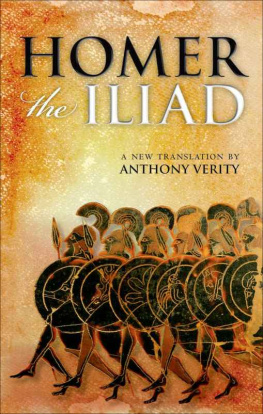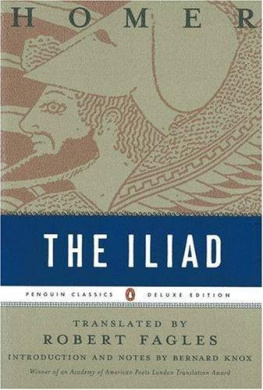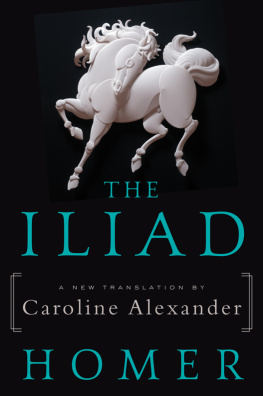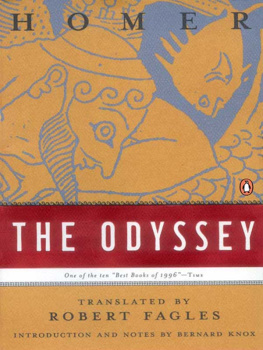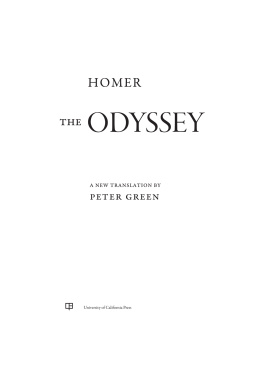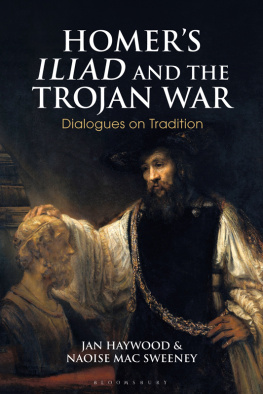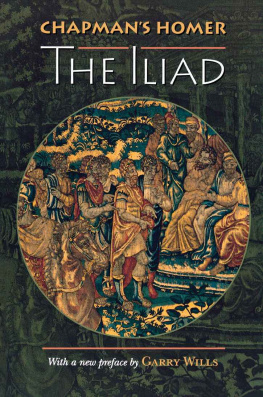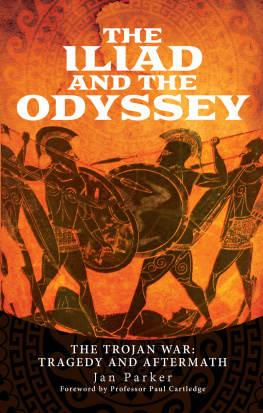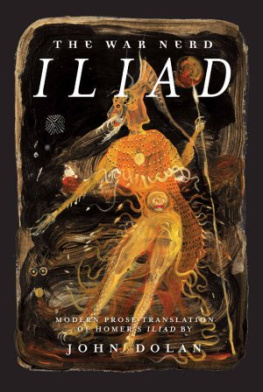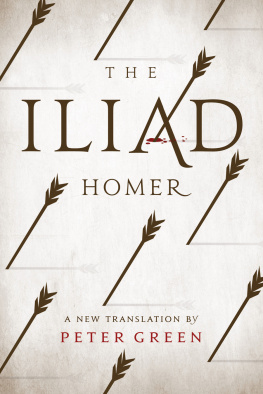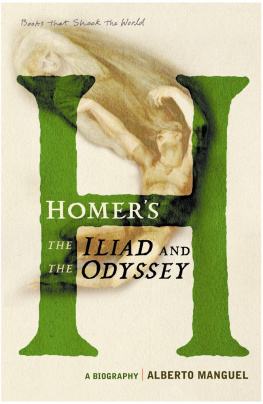
Great Clarendon Street, Oxford 0x2 6DP
Oxford University Press is a department of the University of Oxford.
It furthers the Universitys objective of excellence in research, scholarship,
and education by publishing worldwide in
Oxford New York
Auckland Cape Town Dar es Salaam Hong Kong Karachi
Kuala Lumpur Madrid Melbourne Mexico City Nairobi
New Delhi Shanghai Taipei Toronto
With offices in
Argentina Austria Brazil Chile Czech Republic France Greece
Guatemala Hungary Italy Japan Poland Portugal Singapore
South Korea Switzerland Thailand Turkey Ukraine Vietnam
Oxford is a registered trade mark of Oxford University Press
in the UK and in certain other countries
Published in the United States
by Oxford University Press Inc., New York
Translation and glossary Anthony Verity 2011
Introduction, select bibliography, explanatory notes Barbara Graziosi 2011
The moral rights of the authors have been asserted
Database right Oxford University Press (maker)
First published 2011
All rights reserved. No part of this publication may be reproduced,
stored in a retrieval system, or transmitted, in any form or by any means,
without the prior permission in writing of Oxford University Press,
or as expressly permitted by law, or under terms agreed with the appropriate
reprographics rights organization. Enquiries concerning reproduction
outside the scope of the above should be sent to the Rights Department,
Oxford University Press, at the address above
You must not circulate this book in any other binding or cover
and you must impose this same condition on any acquirer
British Library Cataloguing in Publication Data
Data available
Library of Congress Cataloging in Publication Data
Data available
Typeset by Glyph International, Bangalore, India
Printed in Great Britain
on acid-free paper by
Clays Ltd, St Ives plc
ISBN 9780199235483
1 3 5 7 9 10 8 6 4 2
HOMER
THE ILIAD

Translated by
ANTHONY VERITY
With an Introduction and Notes by
BARBARA GRAZIOSI

CONTENTS
including line numbers
without line numbers
THE ILIAD
THE ILIAD
including line numbers
BOOK ONE
S ING, goddess, the anger of Achilles, Peleus son,
the accursed anger which brought the Achaeans countless
agonies and hurled many mighty shades of heroes into Hades,
causing them to become the prey of dogs and
all kinds of birds; and the plan of Zeus was fulfilled. [5]
Sing from the time the two men were first divided in strife
Atreus son, lord of men, and glorious Achilles.
Which of the gods was it who set them to quarrel and fight?
The son of Zeus and Leto, for he was bitter against the king, and
roused an evil plague through the camp, and the people went on
dying, [10]
because the son of Atreus had dishonoured his priest Chryses.
This man had come to the swift ships of the Achaeans to
redeem his daughter, bringing a boundless ransom and holding
in his hands the woollen bands of Apollo who shoots from afar,
fixed to a golden staff. He entreated all the Achaeans, but [15]
especially the two sons of Atreus, marshals of the people:
You sons of Atreus, and you other well-greaved Achaeans,
may the gods who have their homes on Olympus grant
that you sack the city of Priam and return safely home.
Only release my dear child, and accept this ransom, and [20]
show reverence to Zeus son Apollo who shoots from afar. |
Then all the rest of the Achaeans shouted their approval, that
they should be in awe of the priest and accept the splendid ransom,
but this found no favour in the heart of Atreus son Agamemnon;
he sent Chryses roughly away, and added a harsh command: [25] |
Let me not discover you, old man, beside our hollow ships,
either dawdling here now or returning again later,
in case your staff and the gods bands prove no help to you.
I will not let the girl go; before I do, old age will find her
in my house in Argos, far from her fatherland, going [30]
back and forth at the loom and serving me in my bed.
Go, do not provoke me; this way you will return unharmed. |
So he spoke, and the old man was afraid and did as he said,
and silently made his way along the shore of the loud-roaring sea.
Then, going some way apart, the old man prayed at length [35]
to lord Apollo, whom Leto of the beautiful hair bore:
Hear me, lord of the silver bow, you who stand guard over
Chryse and sacred Cilla, and govern Tenedos with your power,
Smintheus; if ever I built a temple that pleased you
or if I ever burnt for you the fat-wrapped thigh-bones [40]
of bulls or goats, I beg you to fulfil this plea for me:
may the Danaans pay for my tears with your arrows. |
So he spoke in prayer, and Phoebus Apollo heard him,
and came down from Olympus heights furious in his heart,
his bow and lidded quiver hanging from his shoulders. [45]
The arrows clattered against the angry gods shoulder
as he moved; and he came on like nightfall.
Then, sitting apart from the ships, he let fly an arrow,
and his silver bow sang out with a terrible noise.
First he went after the mules and the swift dogs, and then loosed [50]
piercing arrows at the men themselves, shooting without cease;
and all the time the corpse-pyres burnt, crowded together. |
For nine days the gods shafts ranged throughout the camp,
and on the tenth Achilles summoned the people to an assembly;
the goddess Hera of the white arms had put this into his mind, [55]
since she cared for the Danaans, because she saw them dying.
So when they had assembled and were gathered together,
swift-footed Achilles rose and spoke among them:
Son of Atreus, I think we shall now be turned back from here
to wander home againif, that is, we can avoid death [60]
if the Achaeans are to be beaten down by plague as well as war.
Come, let us interrogate some prophet or priest
or interpreter of dreams, for dreams too come from Zeus,
who may tell us why Phoebus Apollo is so bitter against us,
whether he finds fault with us over some vow or hecatomb, [65]
to see if he will accept the savour of lambs and unblemished
goats, and so be willing to turn the plague away from us. |
So he spoke and took his seat again, and among them rose
Calchas, the son of Thestor, by far the best of bird-interpreters,
who understood the present, the future, and the past, [70]
and had guided the ships of the Achaeans to Ilium
by the prophetic skill which Phoebus Apollo had given him.
With generous intent he spoke out and addressed them:
Achilles, dear to Zeus, you command me to explain
the anger of Apollo, the lord who shoots from afar. [75]
Well, I shall speak, but you must mark my words and swear
to come to my help willingly in both word and deed,
because I think I shall infuriate a man who has supreme
authority over the Argives, and whom the Achaeans obey.
A king is the more powerful when he is angry with a lesser man, [80]
because even if he stifles his anger there and then
he feeds the resentment afterwards in his breast until
|
Next page
